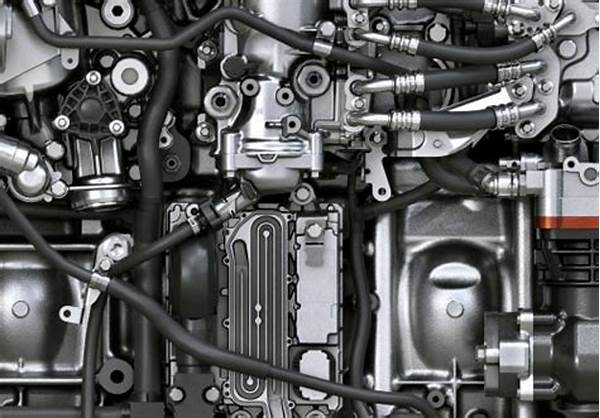
Diesel Engine Green Technologies Implementation
In today’s rapidly evolving world, the need to adopt efficient and environmentally friendly technologies is more critical than ever. One area where this is particularly important is in diesel engines. Diesel engine green technologies implementation is becoming essential for reducing emissions and preserving our planet. By embracing these advancements, we can significantly decrease the environmental footprint of diesel engines while maintaining their exceptional power and efficiency. Join us in exploring why the adoption of diesel engine green technologies is not just necessary but imperative for a sustainable future.
Read Now : Inexpensive Auto Repair Options
The Urgency for Diesel Engine Green Technologies
The urgency for diesel engine green technologies implementation cannot be overstated. As global pollution levels rise, it is increasingly clear that traditional diesel engines contribute significantly to greenhouse gas emissions. This not only impacts climate change but also public health and the environment. The adoption of green technologies in diesel engines offers a sustainable solution, significantly reducing emissions without compromising performance. Governments, businesses, and individuals must understand the crucial role these technologies play in ensuring a cleaner, healthier world. By supporting the research and development of these innovations, we can pave the way for a brighter, more sustainable future where diesel engines operate efficiently and responsibly.
Key Factors in Diesel Engine Green Technologies Implementation
1. Enhanced Fuel Efficiency: Diesel engine green technologies implementation introduces advanced fuel management systems, improving efficiency while reducing consumption and emissions.
2. Emission Reduction Systems: Innovations such as selective catalytic reduction and diesel particulate filters drastically cut the emissions produced by diesel engines.
3. Renewable Fuel Alternatives: Implementing biofuels and synthetic diesel can significantly diminish reliance on fossil fuels, promoting sustainability.
4. Advanced Engine Design: Modern designs focus on reducing friction and improving combustion efficiency, assisting in diesel engine green technologies implementation.
5. Hybrid and Electric Integration: Combining electric power with diesel engines can lead to significant emission reductions and fuel savings.
Challenges and Opportunities in Diesel Engine Green Technologies
Implementing diesel engine green technologies presents both challenges and opportunities. One major challenge is the cost of development and integration, which can be significant. However, the long-term benefits, including reduced operational costs and environmental impact, far outweigh these initial investments. Moreover, diesel engine green technologies implementation offers vast opportunities for innovation and growth within the automotive industry. By investing in these technologies, companies can not only contribute to environmental sustainability but also position themselves as leaders in a competitive market ready for future demands.
Read Now : Value-driven Vehicle Servicing Advice
Identifying the Path Forward in Diesel Engine Green Technologies Implementation
Creating a roadmap for diesel engine green technologies implementation is vital for sustainability. This involves research, collaboration, and investment in breakthrough innovations. By prioritizing cleaner, more efficient technologies, we can reduce emissions significantly. This path forward not only benefits the environment but also drives economic growth by spurring new industries and jobs. Adopting these technologies is not simply a trend but a necessary evolution. Embracing these changes will make a lasting impact on our world and ensure a healthier, cleaner future for generations to come.
Innovating for a Cleaner Future
Embracing diesel engine green technologies implementation is key in the fight against climate change. Innovations such as advanced fuel injection systems, exhaust aftertreatment technologies, and hybridization fundamentally change how diesel engines operate. By making this transition, we significantly diminish harmful emissions, contributing positively to the global ecosystem. Technology advancements ensure diesel engines maintain their reliability and power while becoming more environmentally friendly. This shift not only aligns with global sustainability goals but also offers financial advantages through improved fuel efficiency and potential regulatory incentives. Diesel engine green technologies implementation is a win-win: it supports the environment and economic growth.
Benefits of Diesel Engine Green Technologies Implementation
The benefits of diesel engine green technologies implementation extend beyond environmental gains. Companies adopting these innovations often experience financial savings from improved fuel efficiency and reduced maintenance costs. Collaboration among stakeholders, including manufacturers, researchers, and consumers, drives these technologies’ success, creating an ecosystem where everyone benefits. As these technologies become more mainstream, they foster a culture of sustainability and responsibility that transcends the automotive industry. By understanding and leveraging the potential of diesel engine green technologies, we can pave the way toward a cleaner, more sustainable future.
Summary and Call to Action
In summary, diesel engine green technologies implementation plays a crucial role in modern industry. By prioritizing these innovations, we can drastically reduce harmful emissions and create a sustainable future. This call to action is not only aimed at governments and corporations but also at individuals who can drive demand for cleaner, more efficient technologies. Together, we must commit to diesel engine green technologies, recognizing their dual benefit of environmental protection and economic opportunity. Embrace these technologies today and be a part of the solution for a healthier tomorrow.